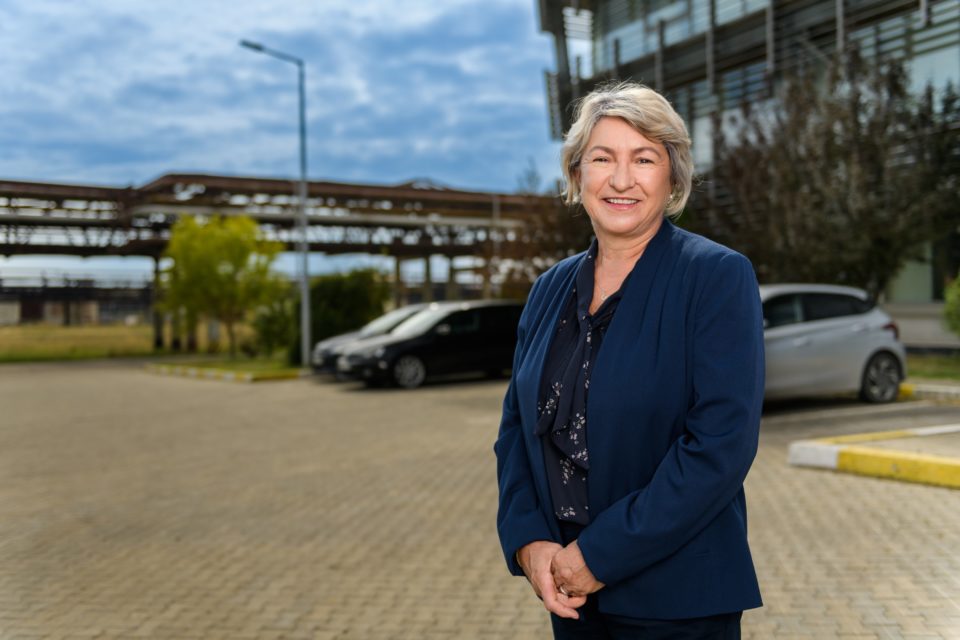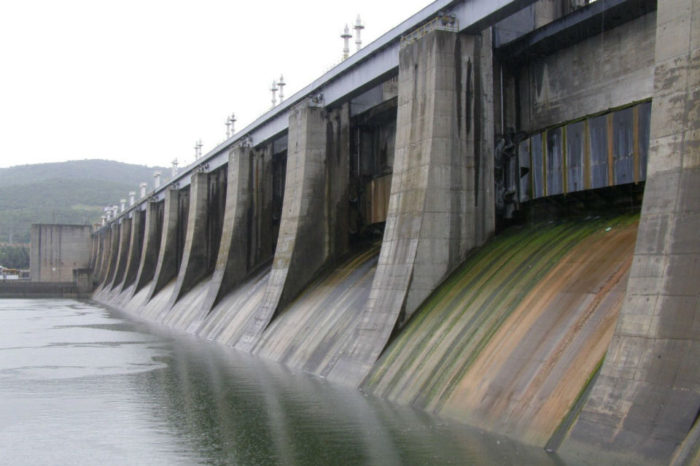Rodica Brăiescu: Adaptability, anticipation and flexibility are very important

Journey into the refinery’s past and present
Over 45 years ago, Petromidia began writing its history on the seashore, in Năvodari. The decision to locate the refinery was made after a helicopter flyover, determining that the current location met all the essential conditions: proximity to the sea, a town that could be developed, and a vast amount of available space.
Continuous modernizations supported by the sole shareholder, KazMunayGas, such as the major investment project in the period 2008-2012, increased the refinery’s capacity to 5 million tons, consolidating its status as a national and regional leader.
Petromidia is a refinery with a high complexity index and processes high-sulfur crude oil, obtaining exclusively Euro 5 products. Petromidia works integrated with Vega, the second refinery of the Group, to which it sends semi-finished products that result in value-added products. Vega is the only local producer of road bitumen and polymer-modified bitumen.
Also within the Petromidia refinery, the only petrochemical unit in Romania operates. In 2008, the refinery put into operation the only marine terminal, located 8.6 km from the Midia Port, which supplies the refinery with crude oil through underground and land pipelines. In 2020, amid the COVID-19 pandemic, Petromidia developed a new petrochemical grade, used for the filter material in protective masks, thus marking a continuous adaptation of the refinery. After years of successive financial losses, caused by market volatility, 2022 was one of the best years in Rompetrol’s history. Petromidia is one of the main engines of industries in the region, with new production records.
Without a well-designed supply chain flow and close and effective collaboration between all departments, a refinery cannot be efficient. Every piece of this puzzle is very important. The history of the Petromidia refinery shows it, and Rodica Brăiescu, Operational Supply Chain Manager, witnessed the changes and actively took part in many of them. Read below her insights:
How long have you been employed by the company and what does your job entail?
My journey in the company started on September 6, 1984, when I was hired as a trainee engineer in the Aromatic Section, then I held the position of plant manager until the section was closed due to high processing costs and low market demand for products since 1989. From 1995 I continued in various departments in the commercial sector: marketing, crude oil import, product sales, witnessing all the strategic business changes from Company. I moved from the Commercial Department to the Trading and Supply Chain Business Unit from today.
The job of Operational Supply Chain Manager involves the coordination of raw material purchases (crude oil, components, biodiesel, bioethanol, methanol), raw material transfers and the sale of products obtained in the two refineries of the KMG International Group (Petromidia and Vega). I interact with all the departments in the group that involve contracting, production, product storage, but also with the Group’s suppliers, as well as with external ones. It is an activity in continuous flow, in which daily we have to find solutions for all the problems that arise. Adaptability, anticipation and flexibility are very important.
What made you want to work here?
Petroleum products touch almost every aspect of people’s lives: from energy – transportation fuels, heating fuels, electricity generation, to pens, foils and bags, packaging boxes and household utensils. Oil refining seems simple in concept, but it is a complex process and fascinating to see how it applies to everyday life.
The energy field is one of the most important pillars of the economy, a sector that attracted my attention and influenced my decision to attend the Chemical Engineering Faculty, and then to choose to work at the Midia Petrochemical Plant – as it was called in 1984, upon graduation.
What does working in Petromidia mean for you and your career?
The answer is simple: my entire career took place in Petromidia – over 40 years of the Refinery – of its 45 years of existence, during which I was part of its entire evolution. From the start-up of refinery and petrochemical plants from 1984-1989 (the first Atmospheric Distillation plant was started in 1979), from total state control and financing to the turmoil brought by each stage of privatization.
There were also difficult periods when we actually struggled to find sources of financing and to secure raw material (crude oil) for the operation of the Refinery facilities. I remember how hard it was to raise money to pay the VAT for the import of crude oil, which provided 1-2 days of processing for the Refinery. We didn’t know how long we would survive.
Then followed the takeover and transformation into the Rompetrol Group starting in 2001. The first crude oil vessel arrived in February and I remember even now that it was called Captain Stelios, with 135,000 tons of imported crude oil. The change of petroleum product standards from Euro 2 to Euro 5 began, which involved investments in the modernization of facilities.
New changes took place in 2007, when Rompetrol was taken over by the KMG Group. A vast program of facility modernization followed, as well as the construction of new facilities, investments for the protection of the environment, which led to an increase in the yield of white goods to 87%. The impact of this takeover was major in the activity of the refinery – the majority shareholder ensured the necessary crude oil that was transported from Kazakhstan and, with it, stability in the processing of the refinery.
What impact did Petromidia have and has for the development of the area?
The city of Năvodari grew together with the refinery, changing from a fishing village into today’s city with important facilities and, I think, one of the richest cities in Romania. Petromidia is one of the important economic pillars of Constanța county, along with the Port and the Cernavodă Nuclear Power Plant. We do not dispute the importance of regional tourism, but the development of the city is mainly due to the refinery.
In addition to development, Petromidia has brought stability to the area. Residents of Năvodari and Constanța have a stable job in Petromidia. We are now on the second generation of employees. The children of the employees who retired here work in the refinery today.
How important is the team to the activity in a refinery?
It is very clear that you cannot do anything on your own. Success is due to the team where people are motivated and devoted to the company’s goals. I have worked a lifetime in Supply Chain and understand how important the entire flow is, from loading the ship or train with raw material, to production scheduling, processing in the refinery facilities to delivery and marketing in our own and customers’ gas stations, each of us is a very important link in this chain.
I like an old Japanese saying: “None of us is as smart as all of us together.” I love people and I believe that together we manage to get through all the challenges and problems that arise.
How has working with people helped you evolve?
Constant interaction with people, whether in the team, customers or suppliers, is a process of exchanging ideas, experiences, learning and improving, so that today we are better than yesterday and tomorrow we are better than today.7.
Is there a lesson you have learned in these years of activity that you would pass on?
I am very grateful to the company for the chance it gave me to work and develop as a professional, but also as a person. Here I learned to turn any constraint into an opportunity. We, the people of Petromidia, created the Rompetrol brand and it is up to us to transmit this brand to future generations through our attitude, loyalty and devotion.















